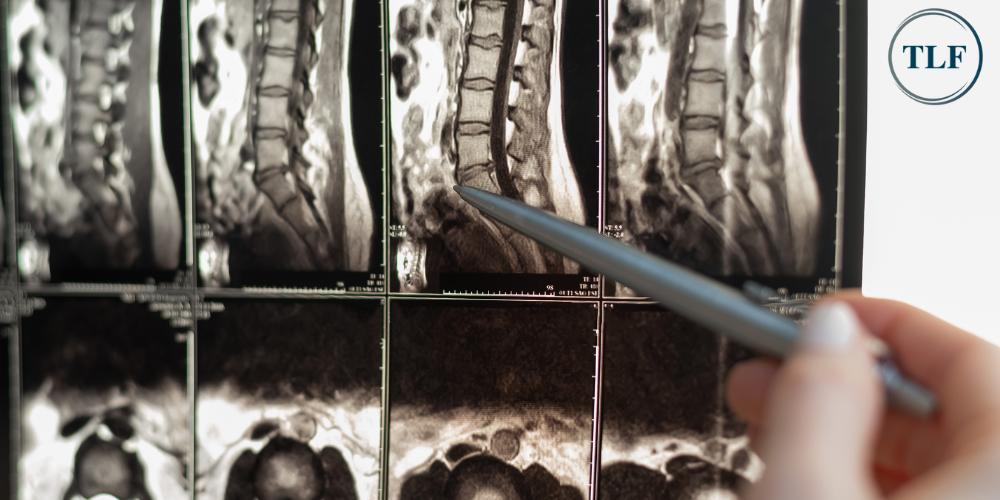Putting Our Knowledge And Experience To Work
Home » Medical Malpractice » Spinal Tap Medical Malpractice
Spinal Tap Medical Malpractice
Ohio and Northern Kentucky Medical Malpractice Attorneys for Injuries Due To Negligence While Administering a Spinal Tap
Spinal taps, or lumbar punctures, are delicate medical procedures requiring the utmost precision and care. Unfortunately, when medical professionals fail to adhere to the medical standard of care when performing a spinal tap, the consequences can be devastating.
The Northern Kentucky and Ohio medical malpractice attorneys at TLF: The Medical Injury Law Firm are committed to pursuing justice and compensation for our clients suffering from spinal tap injuries. Whether it’s a matter of improper technique, failure to diagnose a complication, or any other form of medical negligence, our medical malpractice attorneys possess the knowledge and resources to build a strong case on your behalf. We work to hold responsible parties accountable and to recover compensation for lost wages, medical bills, and other damages.
If you suffered injuries during a brain and spinal cord routine procedure, you may be able to pursue a medical malpractice lawsuit. To discuss your case with one of our experienced spinal cord injury attorneys, call TLF: The Medical Injury Law Firm toll-free at (800) 698-4054 today.

What is a Spinal Tap?
A spinal tap, also called a lumbar puncture, is a routine procedure where a needle is inserted into the back to collect a cerebrospinal fluid sample from the spinal canal for diagnostic purposes. While generally safe, it requires precise execution to avoid complications, highlighting the need for skilled medical professionals to conduct it.
Spinal Tap Medical Procedure: How it Works
The spinal tap is a specialized procedure designed for individuals requiring diagnosis or treatment of neurological conditions. It is performed on patients where cerebrospinal fluid analysis is necessary to detect disorders like meningitis, encephalitis, and multiple sclerosis.
During a lumbar puncture, a doctor inserts a needle into the back to collect a sample of cerebrospinal fluid. This spinal fluid, which surrounds and cushions the brain and spinal cord, is examined for abnormalities. A spinal tap can also be used to administer medication directly into the cerebrospinal fluid for therapeutic purposes.
Is a Spinal Tap Painful?
A lumbar puncture can cause some discomfort, but it’s generally not considered painful. Patients may feel pressure or a brief, sharp pain during the procedure as the needle is inserted into the lower back. This sensation is often described as uncomfortable but tolerable. Local anesthesia is typically applied to the area before the needle is inserted to minimize pain.

Who Performs a Spinal Tap?
A lumbar puncture is typically performed by a neurologist, anesthesiologist, or a specially trained medical professional. In some cases, radiologists may perform the procedure guided by imaging techniques to ensure accuracy. These healthcare professionals have received extensive training in performing spinal taps, ensuring they understand the anatomy of the spine and the techniques required to safely and effectively carry out the procedure.
Lumbar Puncture/Spinal Tap Negligence
Spinal tap negligence occurs when a physician fails to follow the medical standard of care while performing the lumbar puncture. Improper sterilization of equipment, incorrect needle placement, failure to properly assess a patient’s medical history for contraindications, or lack of adequate monitoring during and after the lumbar puncture can all be examples of medical negligence. These errors can lead to complications like infections, bleeding, nerve damage, severe headaches, or worse.
If you sustained a serious back injury or suffered extensive nerve damage during a lumbar puncture, contact the Ohio and Northern Kentucky spinal cord injury attorneys at TLF to learn more about filing a medical malpractice lawsuit.
Common Injuries Sustained From Spinal Tap Malpractice
Injuries resulting from spinal tap malpractice can have lasting impacts on a patient’s health. Some injuries can be mild, while others can have serious complications, permanently altering the patient’s life.
- Back Pain or Headaches – Incorrect needle insertion or technique during a spinal tap can lead to persistent back pain or post-lumbar puncture headaches. These headaches are typically positional, worsening when the patient is upright and easing when lying down.
- Cerebral Herniation – This life-threatening condition can occur if the spinal tap is performed under conditions of increased intracranial pressure, leading to a shift in brain tissue.
- Spinal Cord Injuries – If the doctor inserts the needle too far or at an incorrect angle, it can damage the spinal cord, leading to paralysis or other severe neurological disorders.
- Spinal Hematomas – This refers to bleeding into or around the spinal cord, which can cause compression and neurological impairment if not promptly addressed.
- Spinal Infection – Introducing bacteria into the spinal canal during the procedure can lead to serious infections like meningitis or abscesses, requiring immediate treatment.
- Epidural Hematoma or Abscess – These are collections of blood or pus between epidural space, potentially causing significant pain and neurological issues.
- Nerve Damage – Improper technique can damage the nerves within the spinal canal, leading to pain, weakness, or sensory changes.
- Arachnoiditis – Arachnoiditis is an inflammation of one of the membranes surrounding and protecting the spinal cord’s nerves, often resulting in chronic pain and neurological problems.
- Chemical Meningitis – This rare reaction occurs when certain chemicals or medications introduced during the spinal tap irritate the meninges, the protective membranes of the brain and spinal cord.

Can You Sue for Injuries Resulting From a Spinal Tap Procedure?
If you suffer injuries resulting from a spinal tap, you may have the legal right to sue for medical negligence. To establish a valid claim, it must be demonstrated that the injuries were a direct result of negligence. This involves proving that the healthcare provider failed to perform the lumbar puncture with the competence and skill typically expected of a medical professional in similar circumstances.
Common grounds for medical malpractice lawsuits include improper technique, failure to consider a patient’s medical history, inadequate sterilization leading to infection, or failure to properly inform the patient of potential risks (lack of informed consent).
How Our Ohio and Northern Kentucky Medical Malpractice Attorneys Can Help
The Ohio and Northern Kentucky medical malpractice attorneys from TLF: The Medical Injury Law Firm understand the challenges of representing a spinal tap malpractice claim. Our approach involves meticulous investigation of your claim, consultation with medical experts, and crafting a strong legal strategy to demonstrate negligence.
We recognize the profound impact brain and spinal cord injuries can have and aim to secure maximum compensation for things like medical expenses, lost income, and pain and suffering. As you concentrate on your recovery, we work tirelessly to seek the justice you deserve.

Call TLF: The Medical Injury Law Firm To Learn More About the Potential of Your Claim Today
If you or a loved one sustained a serious injury following a spinal tap procedure, the medical malpractice attorneys at TLF: The Medical Injury Law Firm are ready to assess the potential of your claim and guide you through the complexities of medical malpractice law. We are committed to providing you with the support, knowledge, and advocacy you need during this challenging time. Call us toll-free at (800) 698-4054 to schedule a free consultation with one of our experienced medical malpractice attorneys. You may also call our Kentucky office at (859) 578-9130, our Ohio office at (513) 651-4130, or contact us online to set up your appointment today.
Practice Areas
You Pay No Fees Unless We Win!
We are happy to offer a free consultation to evaluate your case. If you hire us as your legal counsel, we will represent you on a contingency-fee basis. You will pay no attorneys’ fees unless we recover financial damages.
